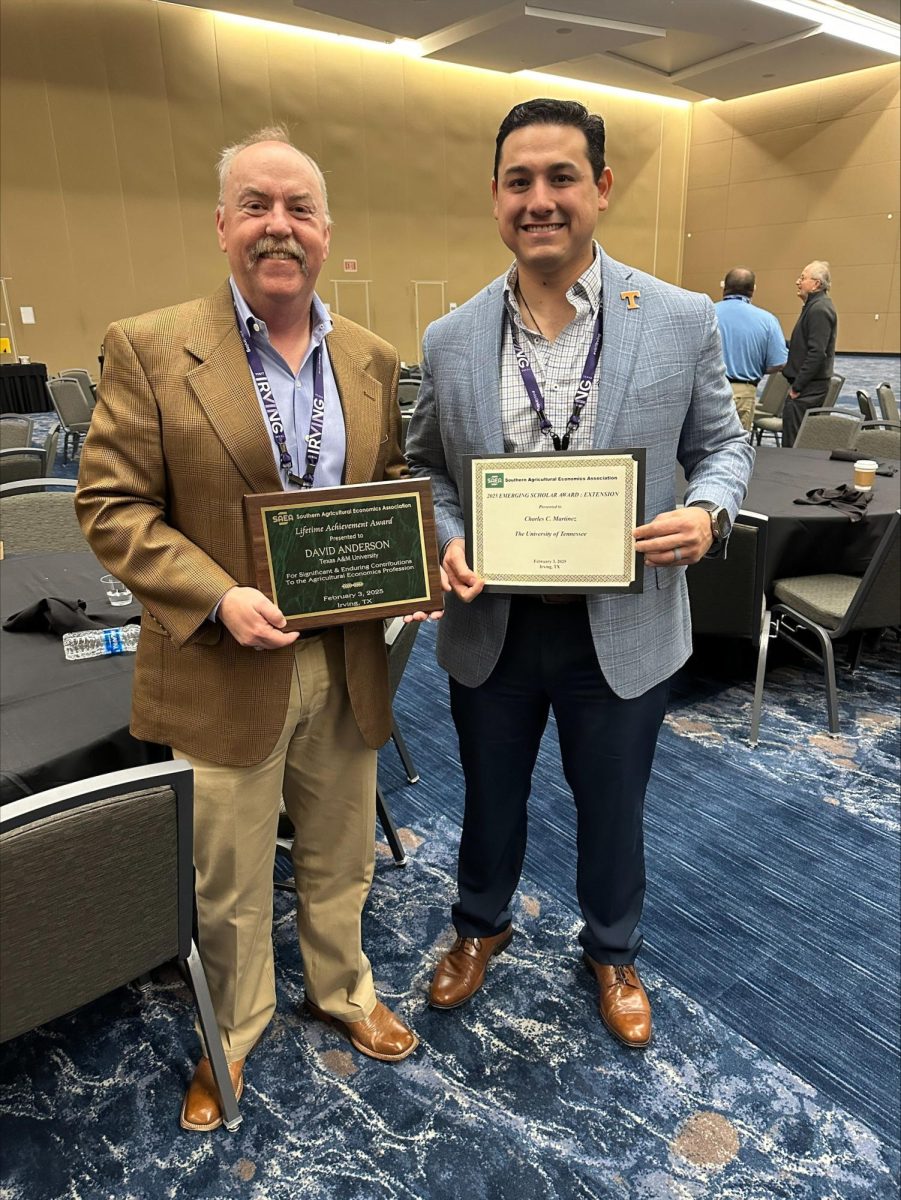A breeding epidemic of mosquitos in Texas is creating a potentially fatal transfusion of West Nile virus.
With high temperatures and moist conditions, mosquitos are naturally drawn to Brazos County. Although some counties across Texas experience more than 100 cases of West Nile virus each year, Brazos rarely approaches more than ten cases.
There have already been a total of 31 human fatalities reported this year in Texas due to the virus, which is a striking contrast compared to the past five years when numbers have been between 1 and 17.
David Teller, medical director of the on-campus student health service, A.P. Beutel Health Center, said there have been two cases in the area this year and the virus came from mosquitos around campus. But Teller said Brazos Valley has not been nearly as bad as the Dallas-Fort Worth metroplex, although the virus certainly has a presence on campus.
The West Nile death toll has reached at least 20 in the Dallas-Fort Worth area, according to The Associated Press.
Aerial spraying of insecticide was completed last week in parts of Dallas County. Ground spraying was scheduled to continue Monday night in parts of Dallas.
West Nile can be fatal, so the City of College Station and the City of Bryan have provided some tips on how to prevent it.
Using an insect repellent containing an EPA registered active ingredient can help prevent mosquito bites.
Mosquitos are most active at dusk and dawn, so during these times its advised that long sleeves and pants be worn or that people stay indoors and that screens be installed to windows and doors.
Its kind of crazy to wear long sleeves and pants, but it really does help, Teller said.
Mosquitos usually breed in standing water. Officials warn that standing water around homes be emptied, especially pet water bowls and flower pots.
Although mosquitos are just the carriers, most of them become infected when they feed on infected birds.
Mary Lynne Stratta, the city of Bryan secretary, said students can access updates through the citys website or through cable channel 16. She also said the city has been sending information home with students throughout the community in hopes of raising awareness.
One of the main messages from the information they are sending out is to Remember the Four Ds: use insect repellants containing DEET, dump stagnant water, avoid outdoors at dusk and dawn and dress appropriately.
In some cases, symptoms can be high fever, neck stiffness, disorientation, convulsions or vision loss. Most people experience mild symptoms, and the majority of cases experience none at all when infected.
The virus usually deteriorates on its own, so unless experiencing major symptoms, it is usually not necessary to seek medical attention.
West Nile virus problem evident in Texas
August 30, 2012
0
Donate to The Battalion
$2790
$5000
Contributed
Our Goal
Your donation will support the student journalists of Texas A&M University - College Station. Your contribution will allow us to purchase equipment and cover our annual website hosting costs, in addition to paying freelance staffers for their work, travel costs for coverage and more!
More to Discover









